GTG Links 53 – Microsoft's Three Mile Island, EA & T2 Impact reports, and the GHG footprints of the 1%

It's a long weekend here, so I'm spending it playing Dragons Dogma 2 (picked up in the sale), but perhaps you might be interested in some reading? Here's a few of the choice pieces that I read the past fortnight that might strike your fancy...
EA's ESG report
EA’s impact report has been released [PDF], and it's a nice little qualitative step up in disclosures. They’ve increased the S3 categories they’re reporting, and granularity has improved over last year (good! better transparency & clarity). They’re also claiming to have done something to improve the download size of game updates, which has resulted in energy savings (likely true!) but there's precious little detail so far. It could be substantial, and I'm curious where exactly it registers in their footprint… but I need to see more detail. It's almost like we need some sort of Standard approach to methodology and calculations...
Mind you, EA's goal still seems to be "carbon neutrality" which only means "we will buy credits to cover our emissions" leaving them still trailing behind in the net zero stakes. As long as cheap, questionable credits are available (which is not about to change any time soon in my view – the incentives are just too high for markets and sellers) this is only going to be a very weak incentive to reduce actual emissions.
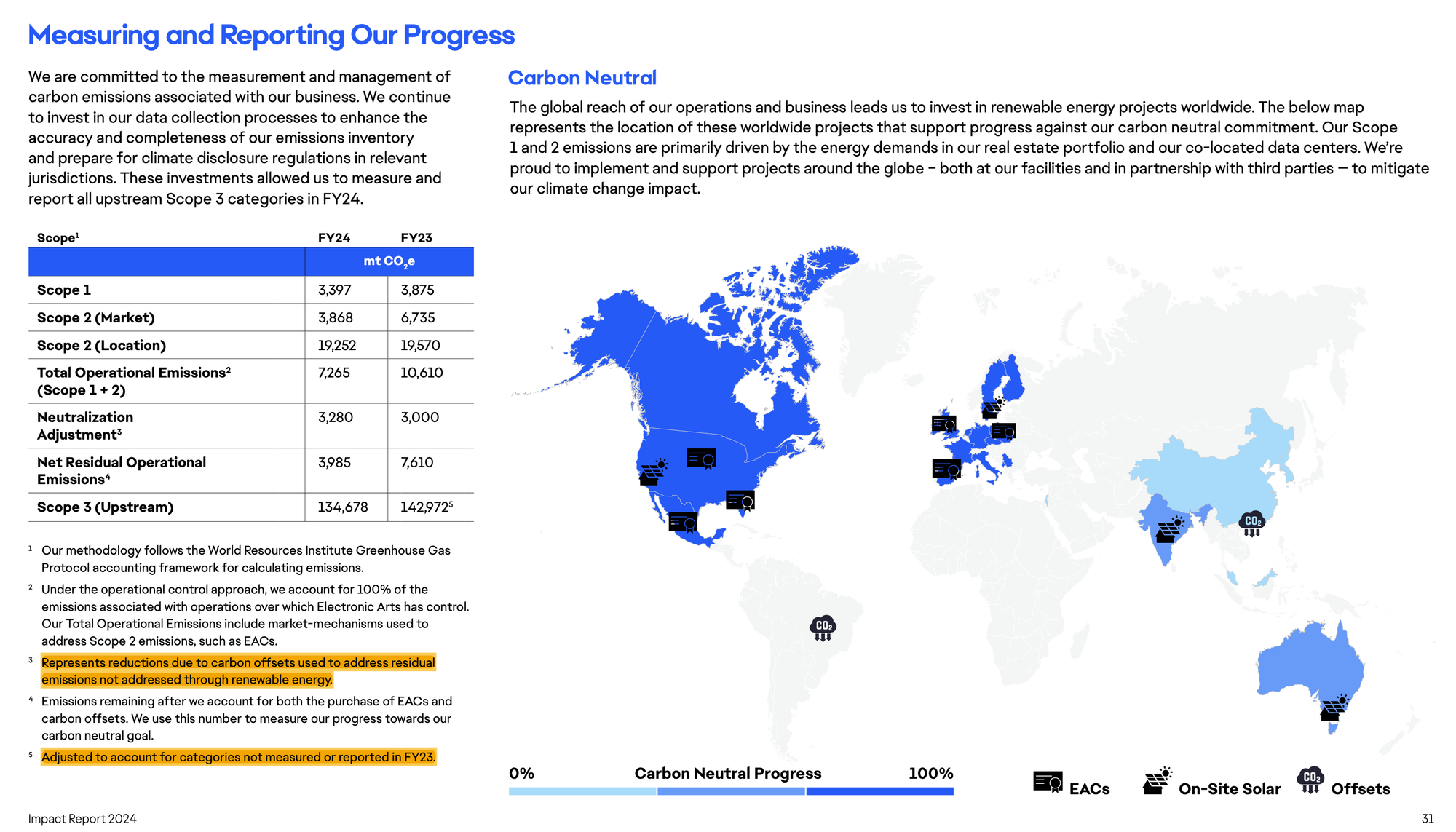
MSCI new research on the state of the integrity of the carbon credits market
Case in point – it's not a glowing assessment. [PDF]. The vast majority of credits available "likely junk", representing only questionable real avoided or reduced emissions. Not worth the money, in my view.
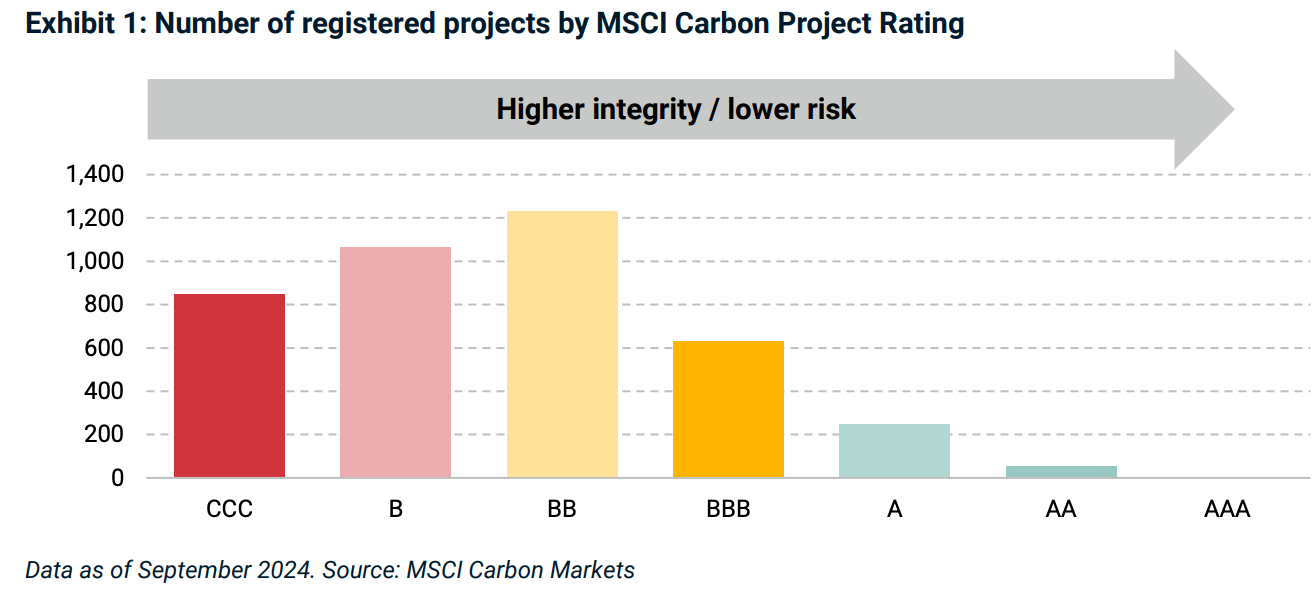
Take Two's Impact report
It's out! Only just spotted it right this second – so here's the direct link [PDF]. And there's also an updated TCFD report as well. [PDF] You'll recall that I praised the T2 team's comprehensive assessments in their last TCFD disclosure, and from a quick look it seems to keep the same standard. If you're thinking about what short, medium, and long term sustainability risks and opportunities there are for game businesses, here's a great place to start.
Notable things from a (very quick!) glance at the report – T2 seems to be buying more renewable energy, as their market-based emissions are reducing. Positive steps.
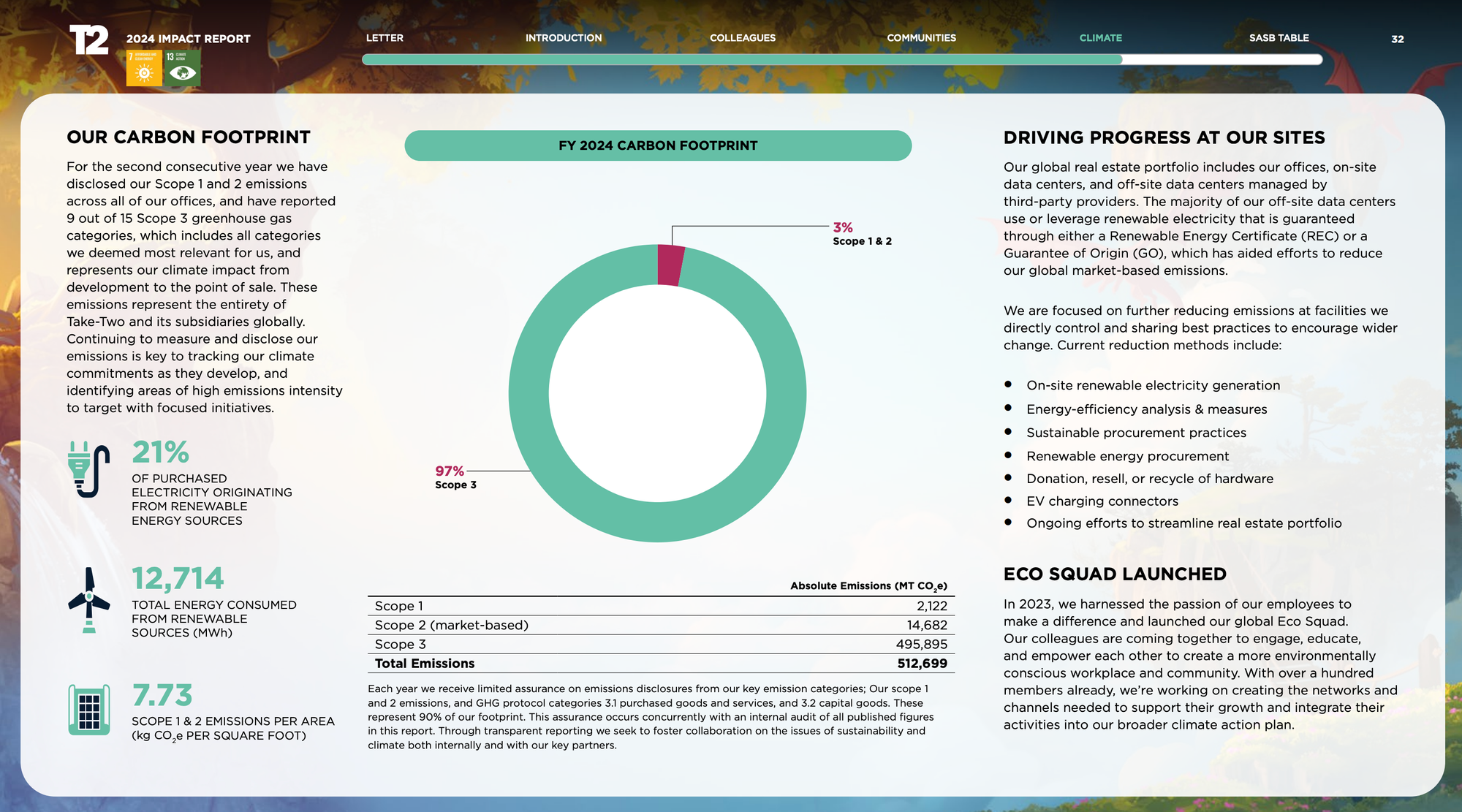
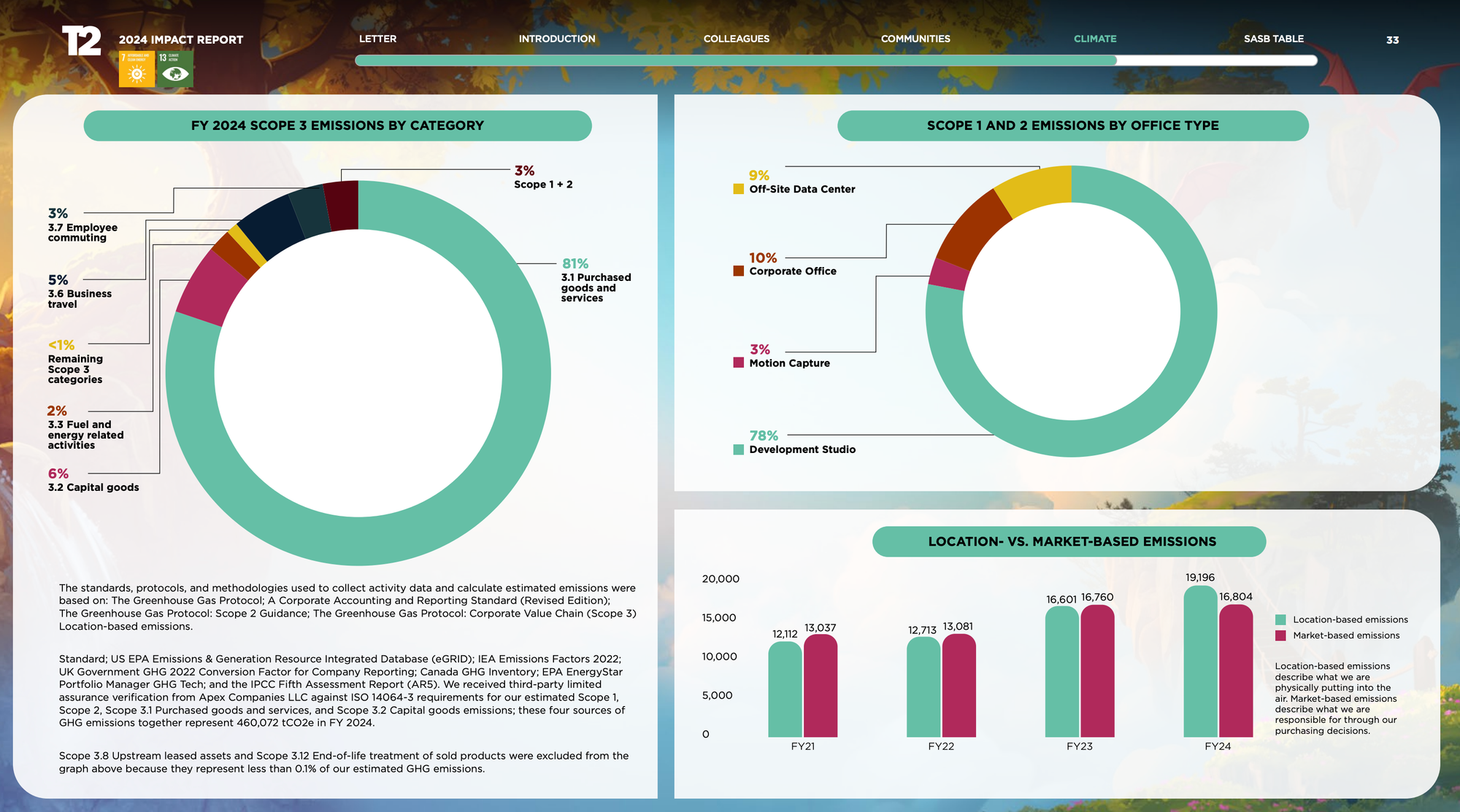
On a less positive note – emissions year on year are up around about 10% which might be due to improved measurement methods, better data capture, or just business growth, it's hard to say. Lot of work to be done to decouple emissions from revenue, and turn those numbers around.
Game console sales figures
Found this via Simon Carless' newsletter. Look at the charts for console lifetime sales. The games industry has been a pretty crazy for the past twenty odd years.
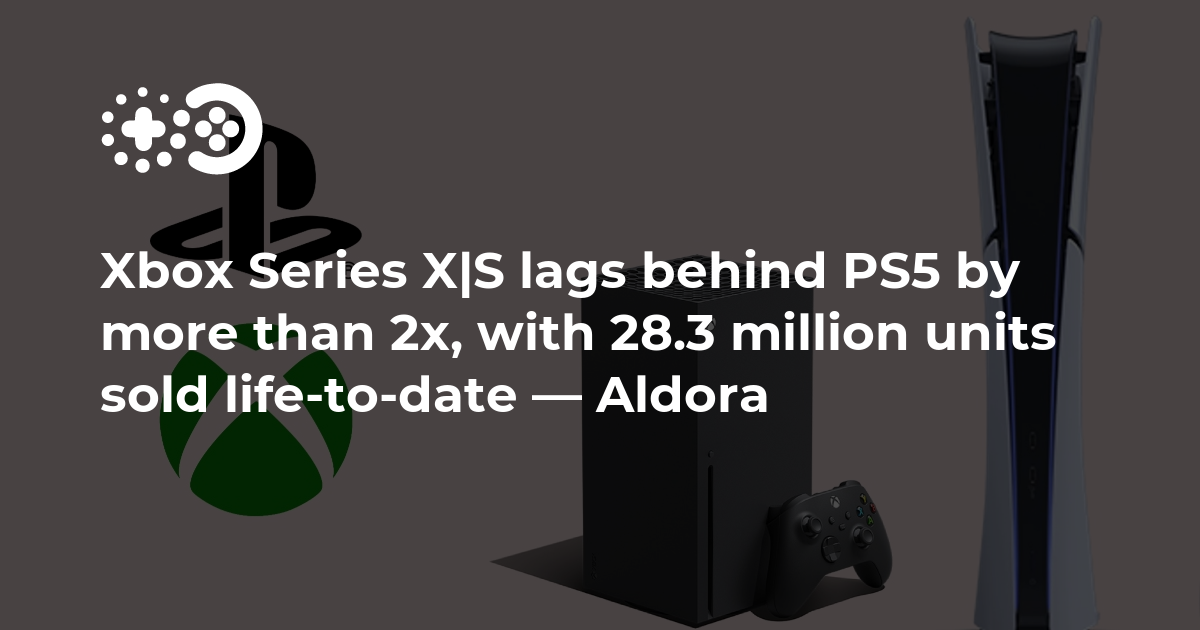
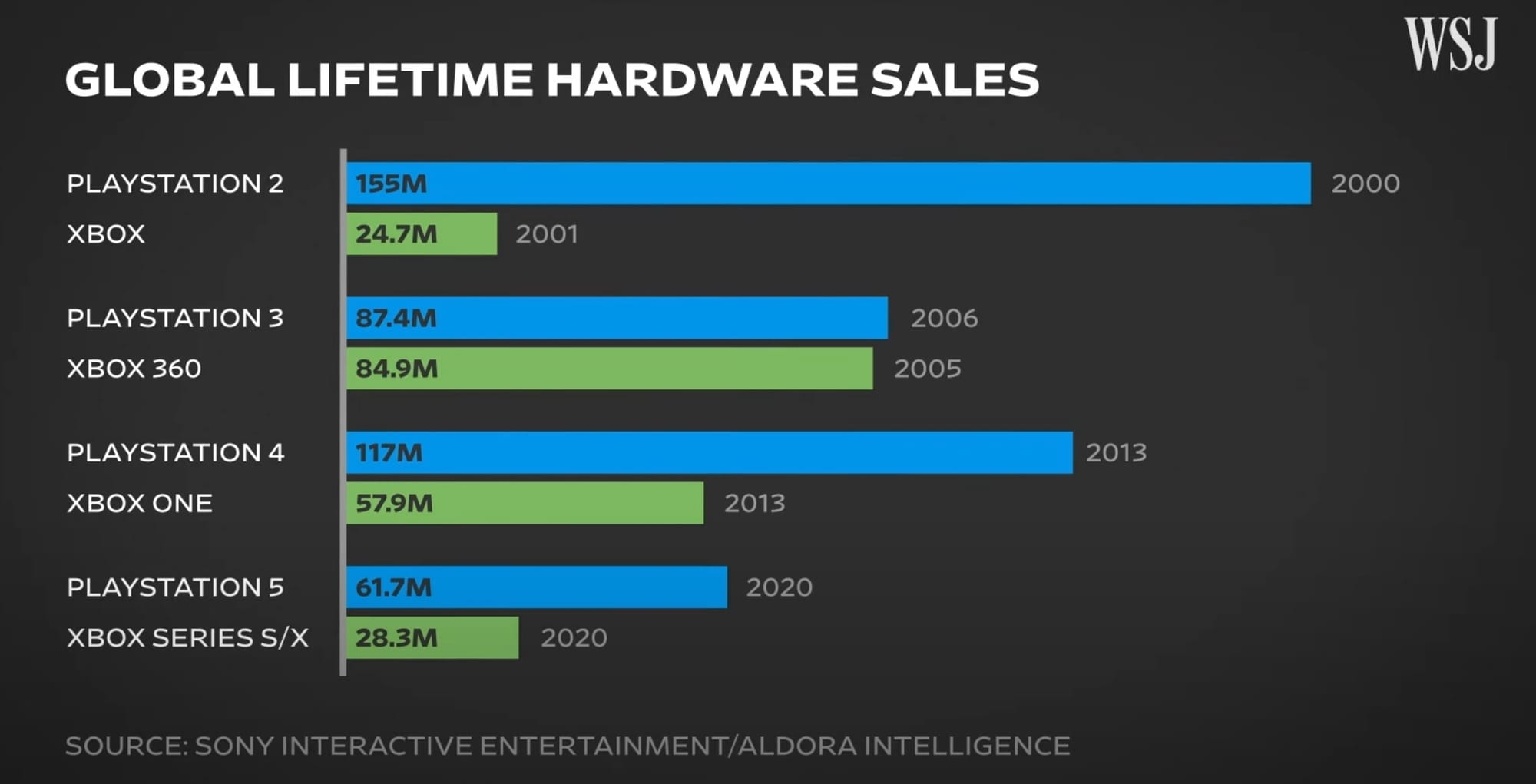
We also have a solid idea of the sort of emissions involved in console manufacturing for many of these devices now too – important missing ones are the PS2 and X360 (both from so long ago now they're almost impossible to estimate) and the modern PS5. In principle, we could just add emissions factors and tally them all up... if only someone had time...
Data centre emissions hidden by Scope 2 accounting methods

Degrowth debates
I linked this in Monday's piece on the ESRS, but it's worth highlighting separately. A lengthy, academic debate has been happening around the concept of degrowth and other work under the broad umbrella, with a rather "selective" review acting as a bit of a hit piece, and triggering several lengthy, engaging critiques that I have found illuminating. This one is a an easily accessible entry to the concept and field, with a huge depth of links to browse afterward. Recommended!
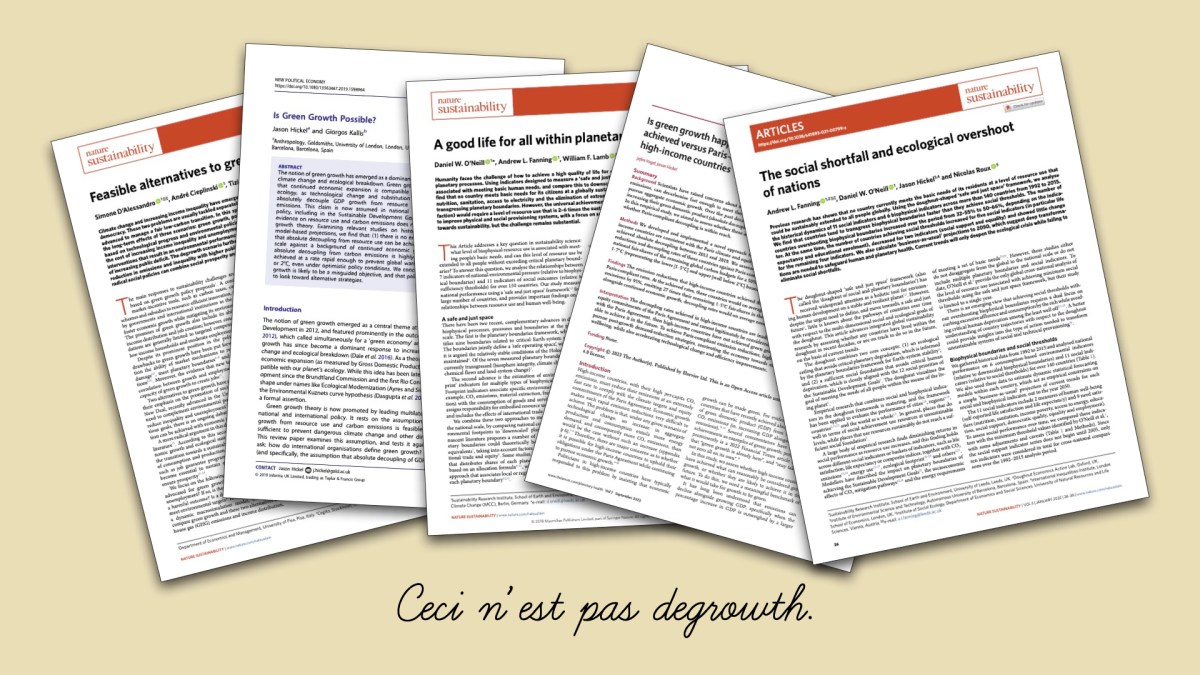
IEA update on slowing global oil demand growth
It's still trending in the wrong direction (upwards) but like a rock thrown in the air, before it goes down, it has to slow its ascent... probably... I guess? It has a lot of inertia, I'm trying to say.
World oil demand is on course to increase by 900,000 barrels per day, or 0.9%, in 2024 and 950,000 barrels per day next year – down from growth of 2.1 million barrels per day, or 2.1%, in 2023, according to our latest monthly Oil Market Report. This assessment is supported by newly available data for the first six months of 2024, which confirms the significant slowdown we have been projecting since our first forecast for 2024 was published in June 2023.
From their newsletter which you can read online here.
People radically underestimate the footprints of the 1%
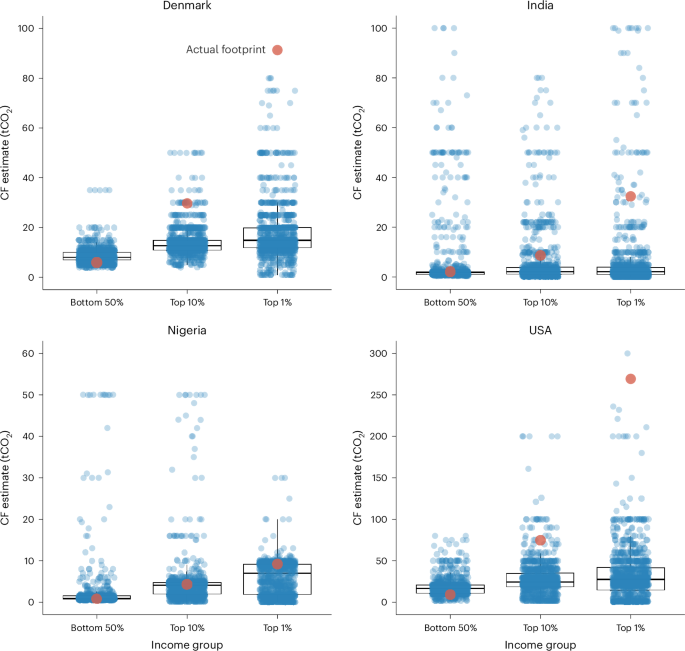
And a neat write up of the research in New Scientist if you don't want to wade through all the technical jargon. (archive version)
Microsoft is buying the power from a reopened 3 mile island power plant
This is staggering to me. Both that their demand is big enough – and their pockets deep enough – to do this is just flabbergasting. [Archive version link]
The best AI enviro impacts primer you can read online.
This is really really good. Super detailed, and sober assessment.
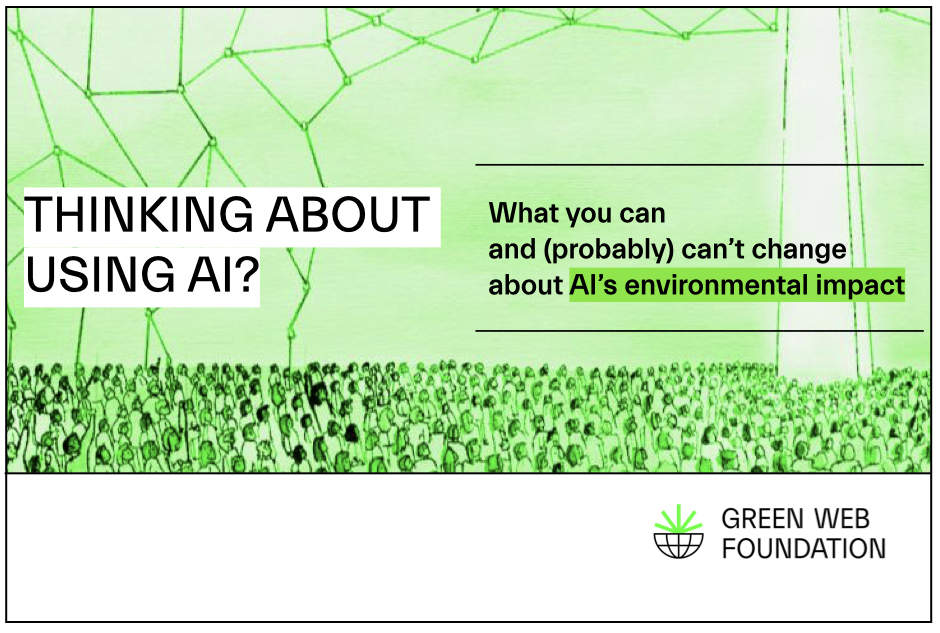
Australia’s new sustainability standards are expected to pass the lower house this month

See you next time.





